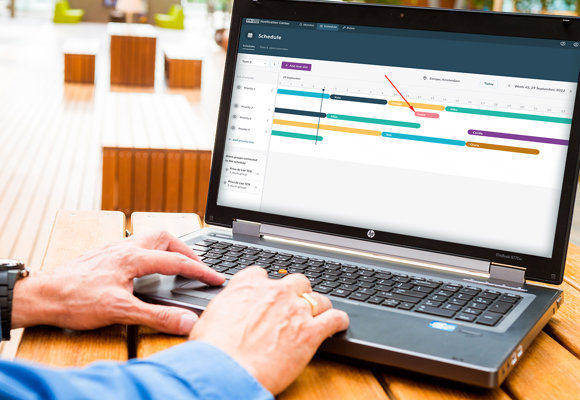But if the overall ‘direction of travel’ is now clear, it doesn’t mean that suspicion of the cloud has entirely disappeared. Some organizations still harbor concerns about the security of cloud platforms. Others have reservations about data protection and possible skills gaps – as well as the practicalities of moving to the cloud.
But, today in 2023, we are in a rapidly maturing solutions market – and these fears are misplaced – and that includes among facilities managers (FMs).
In fact, FMs make up one of the groups that stand to benefit most from shifting to the cloud. With a pragmatic approach and the right assistance, FMs have no cause to fear the cloud – in fact, they have a huge amount to gain…
1. Cloud services can enable more control and data optimization for your building.
One of the big advantages of cloud-based digital services is that you can more easily harness data to improve efficiency and optimize control. For instance, Priva provides a range of APIs (Application Programming Interfaces) that allow you to connect third-party applications – or your own software – to the data in your building. You can oversee the set-up yourself and determine the necessary permissions and access rights.
Having greater command of your building data allows you to spot inefficiencies or problems – and then take steps to resolve them. Priva’s cloud-based Digital Services portfolio includes APIs for real-time data and historical data (2), while its powerful app enables easy control and adjustment of building systems – regardless of location.
2. Cloud services are more – not less – robust and secure than on-premise equivalents
Cloud service providers are able to invest far more in security than any individual company could. For example, Priva’s Digital Services are based in the Microsoft Azure platform, which is subject to a $1 bn annual investment in cyber-security (3). This means we have the best possible chance of staying one step ahead of the cyber gangs, who are always working on new methods of attack.
So it’s only logical that, as global consulting firm PwC observed, “a move to the cloud doesn’t decrease security – it increases it.” FMs who opt to use cloud-based systems can therefore take another big worry out of the picture.
"Microsoft invests $1 billion each year in cybersecurity for its Azure cloud platform - a platform that successfully fends off 7 trillion cyber threats per day." (4)
3. Maintenance and operational changes will be easier and more flexible
Shifting to the cloud isn’t just about short-term gains – it also makes the FM’s job much easier in the long-term. Whether you rely on internal staff or an external specialist, monitoring performance and resolving problems is easier when you are working in the cloud. The number of on-site call-outs is bound to drop off. You will reduce fuel and personnel expenses – not to mention your stress levels!
And that, as they say, is just the tip of the iceberg. Identify a cloud-based service provider that allows you to optimize your building systems and your use of data (as with Priva APIs), and you will be all set for a more cost-efficient future. In the current climate, that has to be music to the ears of FMs everywhere.
Sources:
(1) https://www.gartner.com/en/newsroom/press-releases/2022-04-19-gartner-forecasts-worldwide-public-cloud-end-user-spending-to-reach-nearly-500-billion-in-2022
(2) https://www.priva.com/solutions/building-automation/building-connectivity-api
(3) & (4) https://www.pwc.com/m1/en/publications/five-challenges-cloud-adoption-how-overcome-them.html


















